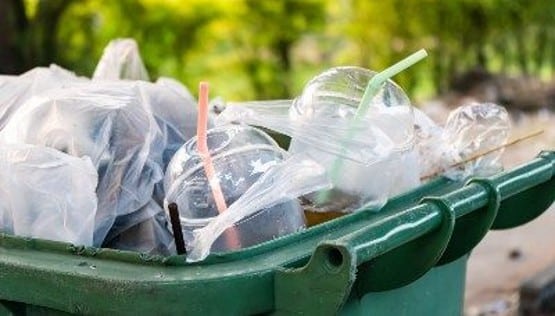
The Environmental Protection Agency announced orders Friday to direct Inhance Technologies LLC not to produce per- and polyfluoroalkyl substances (PFAS), chemicals that are created in the production of its plastic containers.
The order is applauded by Congresswoman Jennifer McClellan of Virginia who called on the EPA to protect consumers from exposure to PFAS. In July, she led 11 House colleagues in a letter to EPA Administrator Michael Regan, expressing concerns about the Inhance process and urging the EPA to comprehensively address PFAS created by the fluorination of plastics.
In December 2022, Inhance submitted significant new use notices (SNUNs) for nine long-chain PFAS. The EPA prohibited the manufacture of three of these PFAS with Friday’s announcement: perfluorooctanoic acid (PFOA), perfluorononanoic acid (PFNA) and perfluorodecanoic acid (PFDA), all of which are highly toxic and present unreasonable risks.
EPA also determined that the other six PFAS produced by Inhance’s process — PFuDA, PFDoA, PFTrDA, PFTeDA, PFHxDA and PFODA — may present an unreasonable risk of injury to health or the environment. Under EPA’s new orders, Inhance’s fluorination process must be changed or discontinued by February 2024, because it concurrently produces all nine PFAS.
“I commend Administrator Michael Regan and the EPA for issuing these orders to protect American consumers from exposure to dangerous PFAS chemicals in plastic containers that people use every day,” McClellan said. “Exposure to PFAS can lead to severe, adverse health outcomes and disproportionately impacts low-income communities, communities of color, and other vulnerable populations. Today’s actions are an important step in advancing environmental justice for historically marginalized communities. I will continue looking for opportunities to reduce the risks of PFAS exposure and protect the health of Americans across the country.”
Fluorination is a process that involves treating plastic containers with fluorine gas in order to make them impermeable. Hundreds of millions of fluorinated plastic containers are manufactured and used across the United States and increase the risk of PFAS exposure to factory workers and communities in proximity to landfills and plastic recycling facilities. Recent studies have also shown that PFAS formed as a result of fluorination can migrate to the container contents, increasing the risk of direct human consumption.










